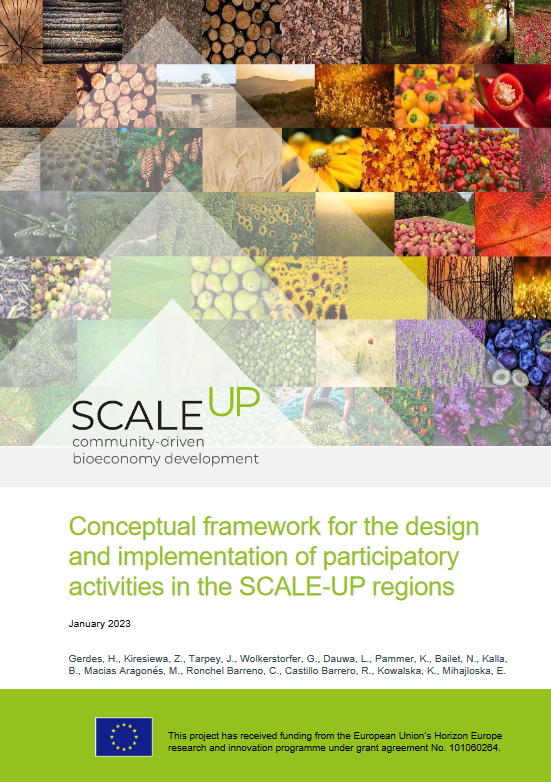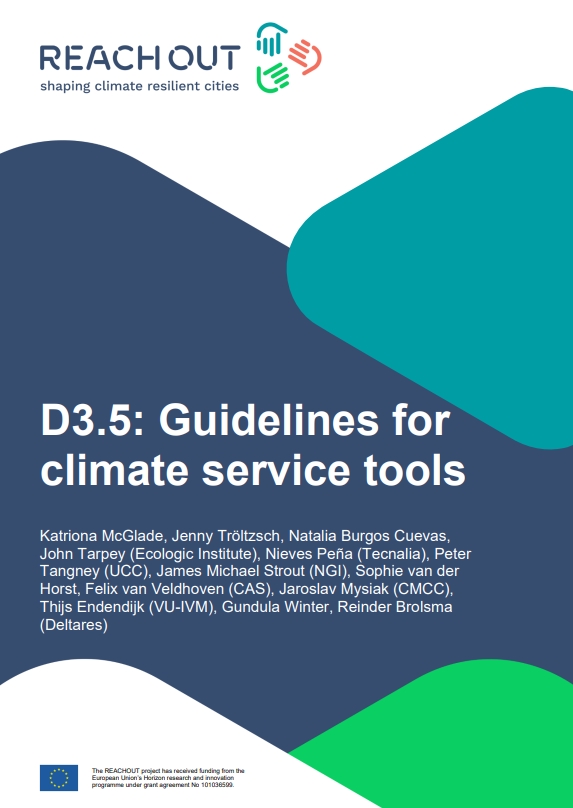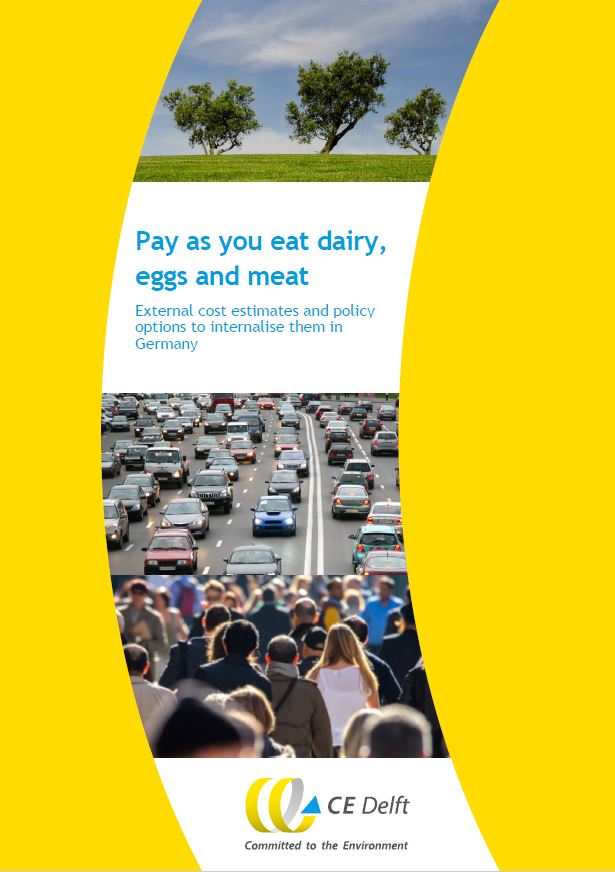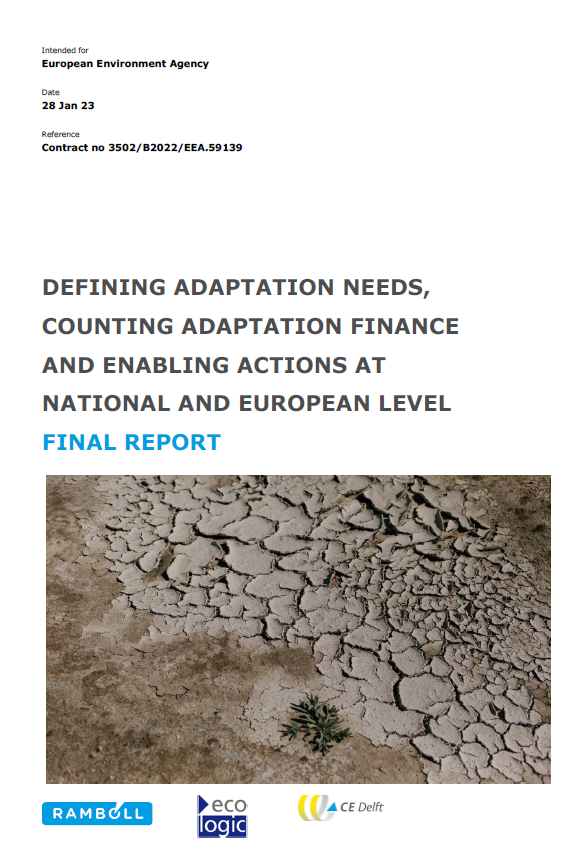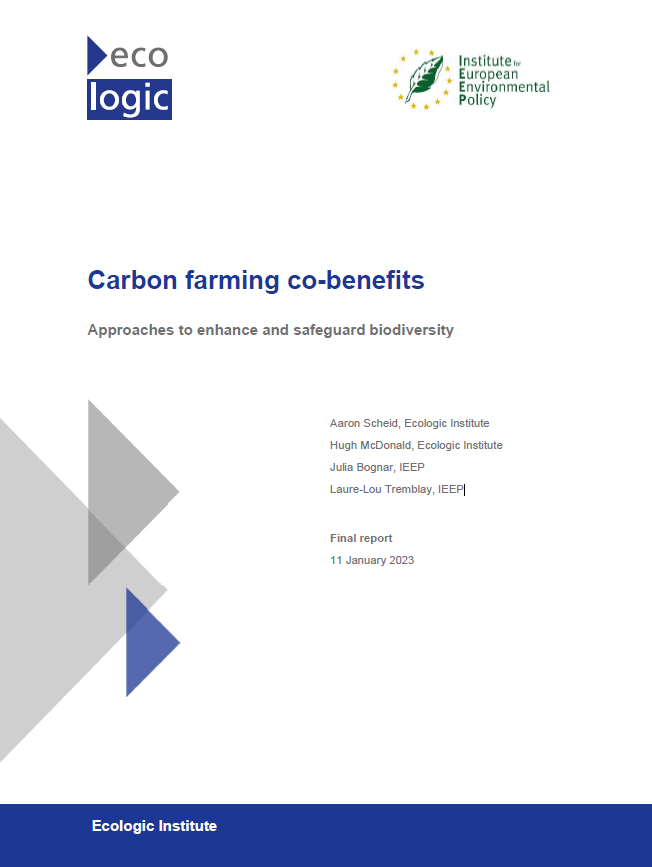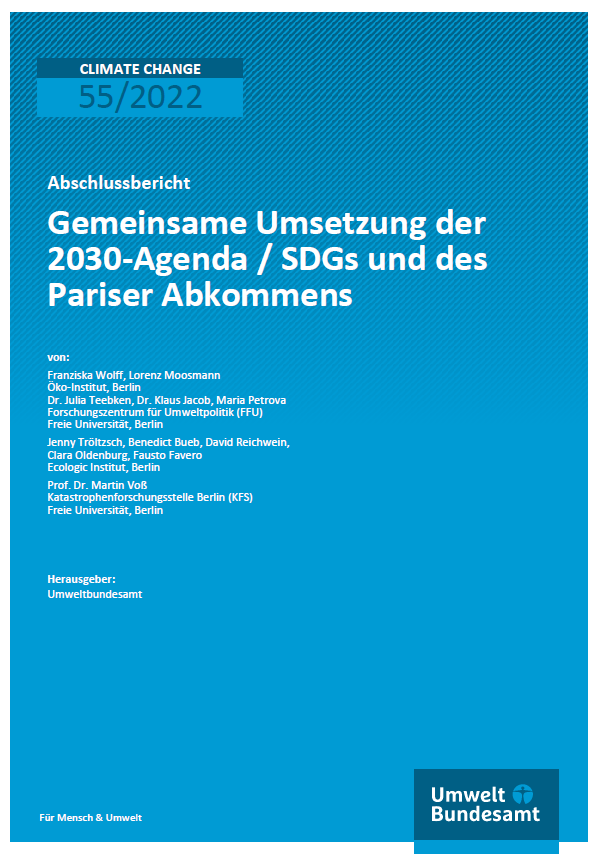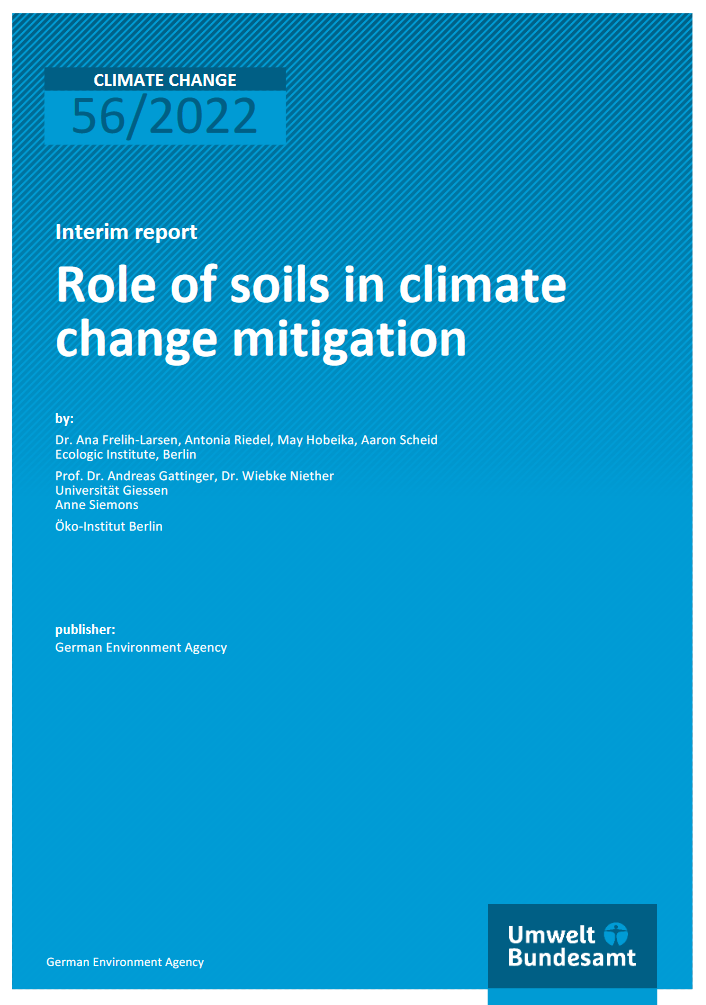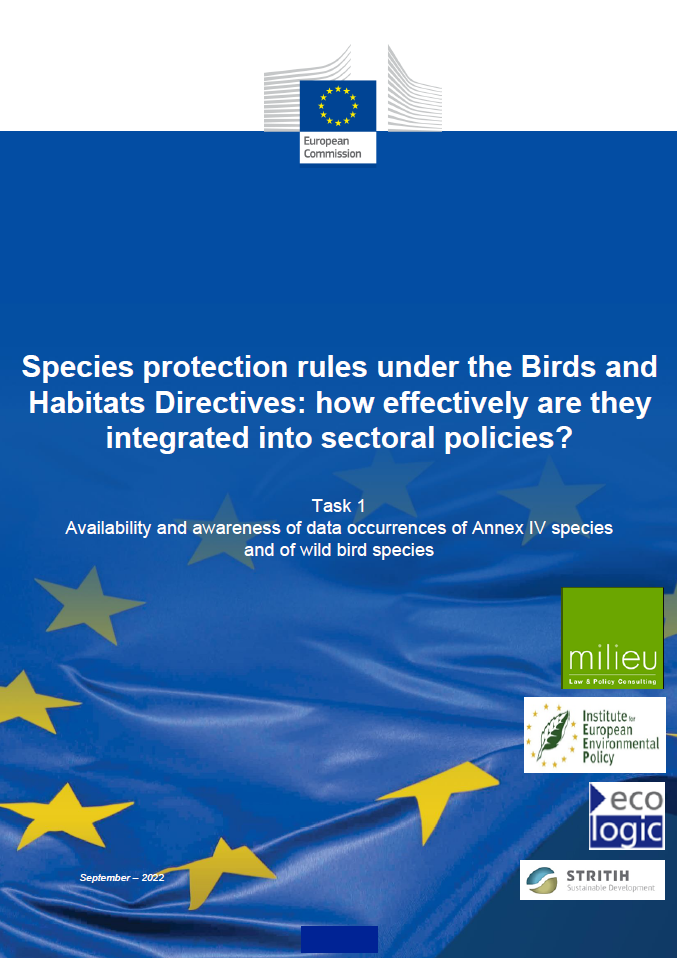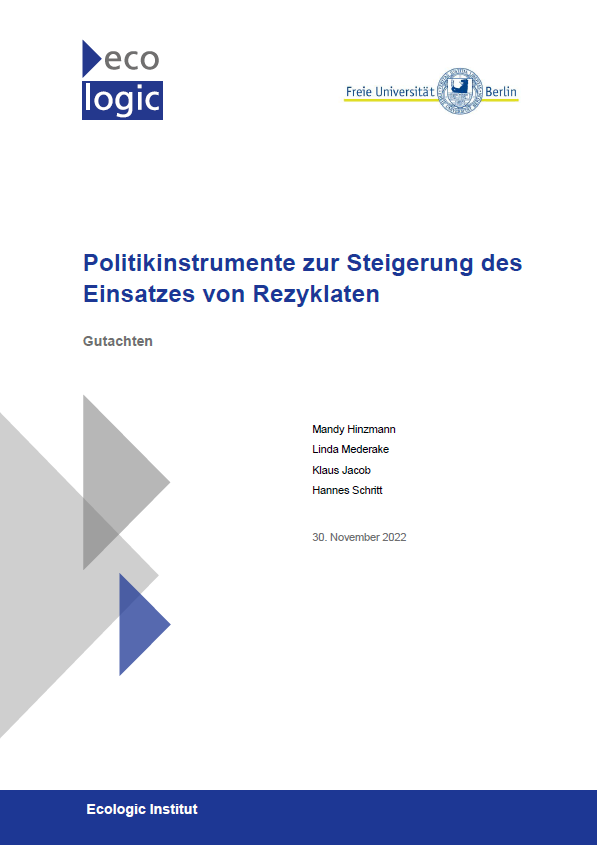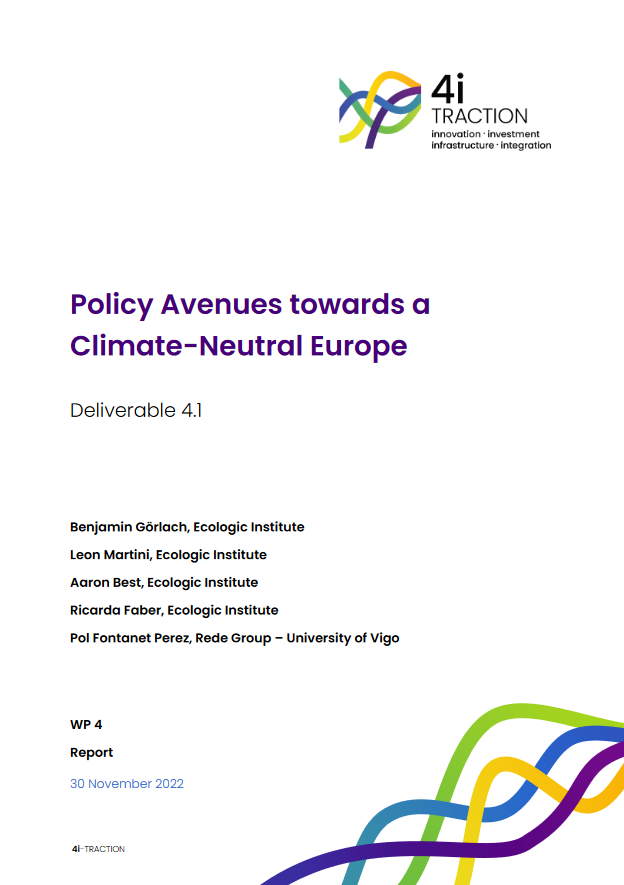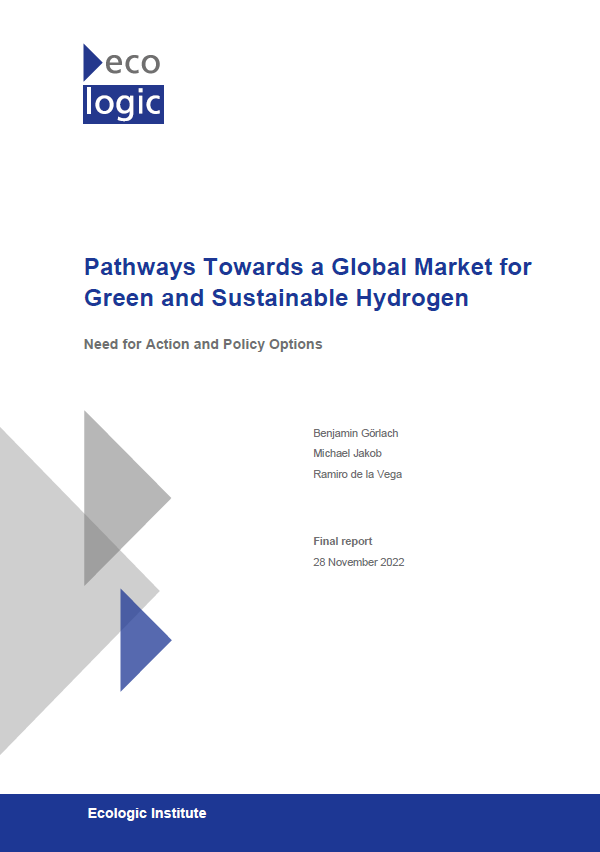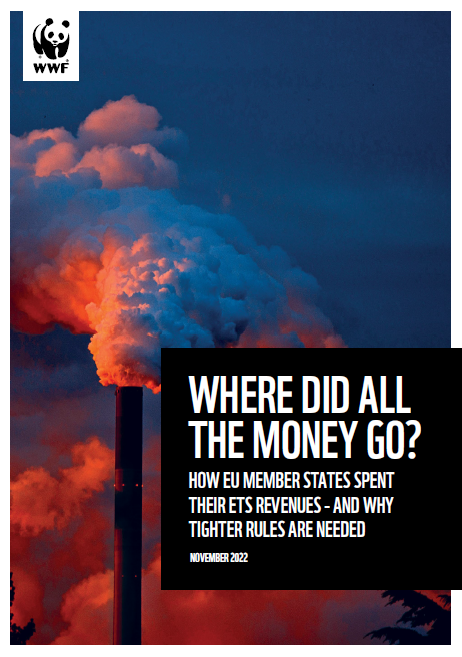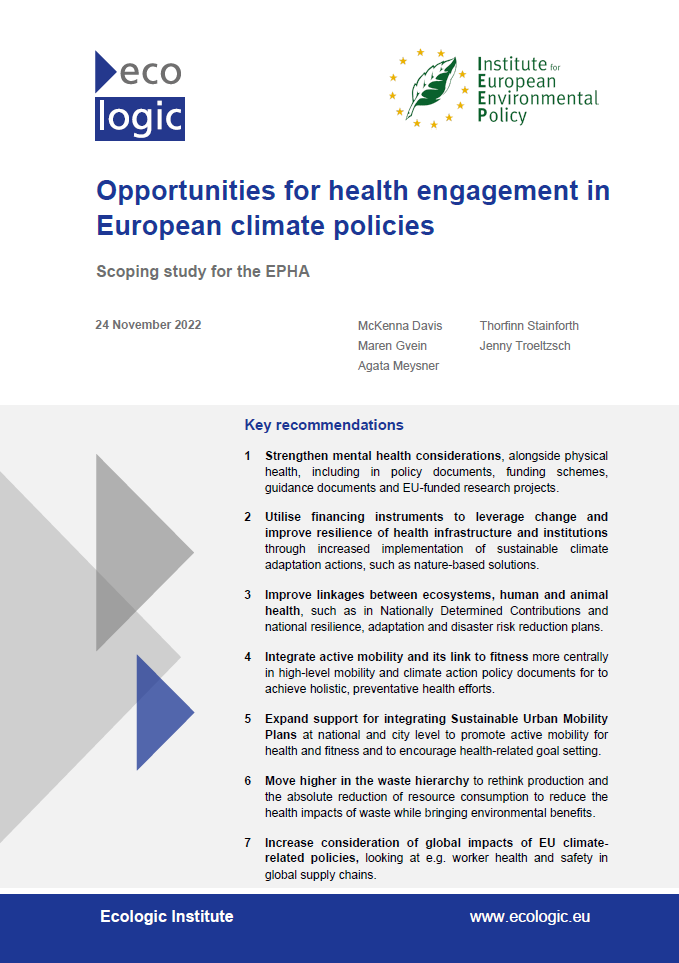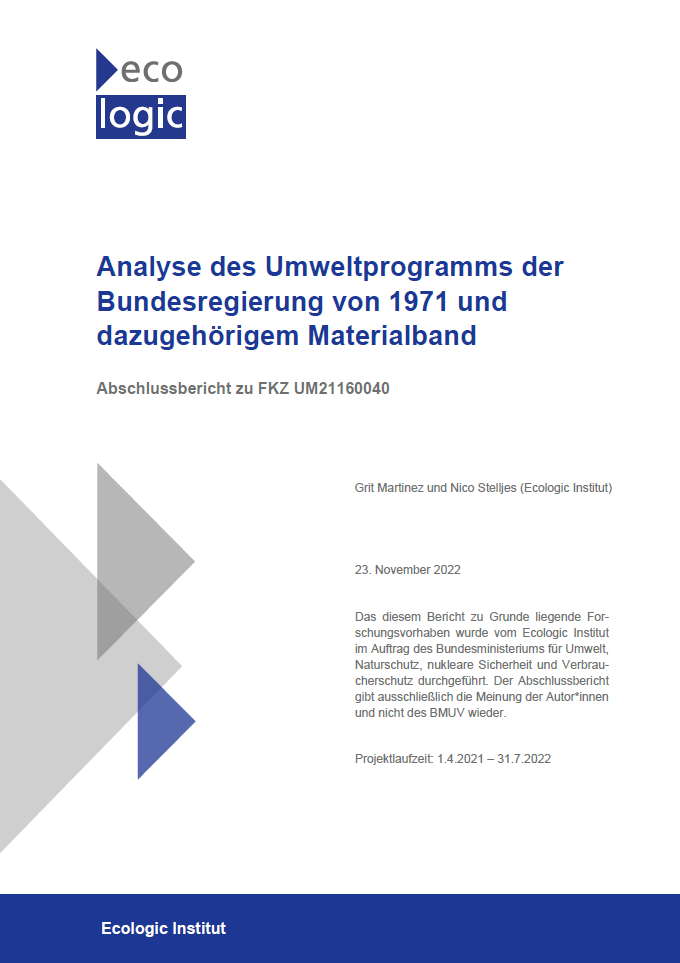Publication:Report
Publication:Report
Guidelines for Climate Service Tools
Deliverable 3.5 of Horizon 2020 project REACHOUT
Year
Read morePublication:Report
Pay as You Eat Dairy, Eggs and Meat
External Cost Estimates and Policy Options to Internalise Them in Germany
Year
Read morePublication:Report
Publication:Report
Publication:Report
Gemeinsame Umsetzung der 2030-Agenda / SDGs und des Pariser Abkommens
Abschlussbericht
Year
Read morePublication:Report
Publication:Report
Publication:Report
Publication:Report
Publication:Report
Pathways Towards a Global Market for Green and Sustainable Hydrogen
Need for Action and Policy Options
Year
Read morePublication:Report
Publication:Report
Where Did All the Money Go?
How EU member states spent their ets revenues – and why tighter rules are needed
Year
Read morePublication:Report
Opportunities for Health Engagement in European Climate Policies
Scoping study for the EPHA
Year
Read morePublication:Report
